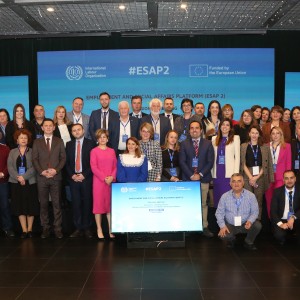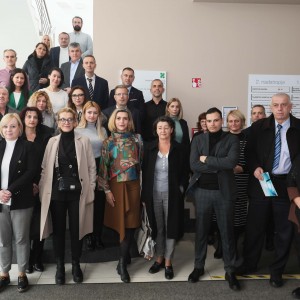RCC ESAP 2: More Active Women in the Labour Markets, Stronger PES in the Western Balkan Economies
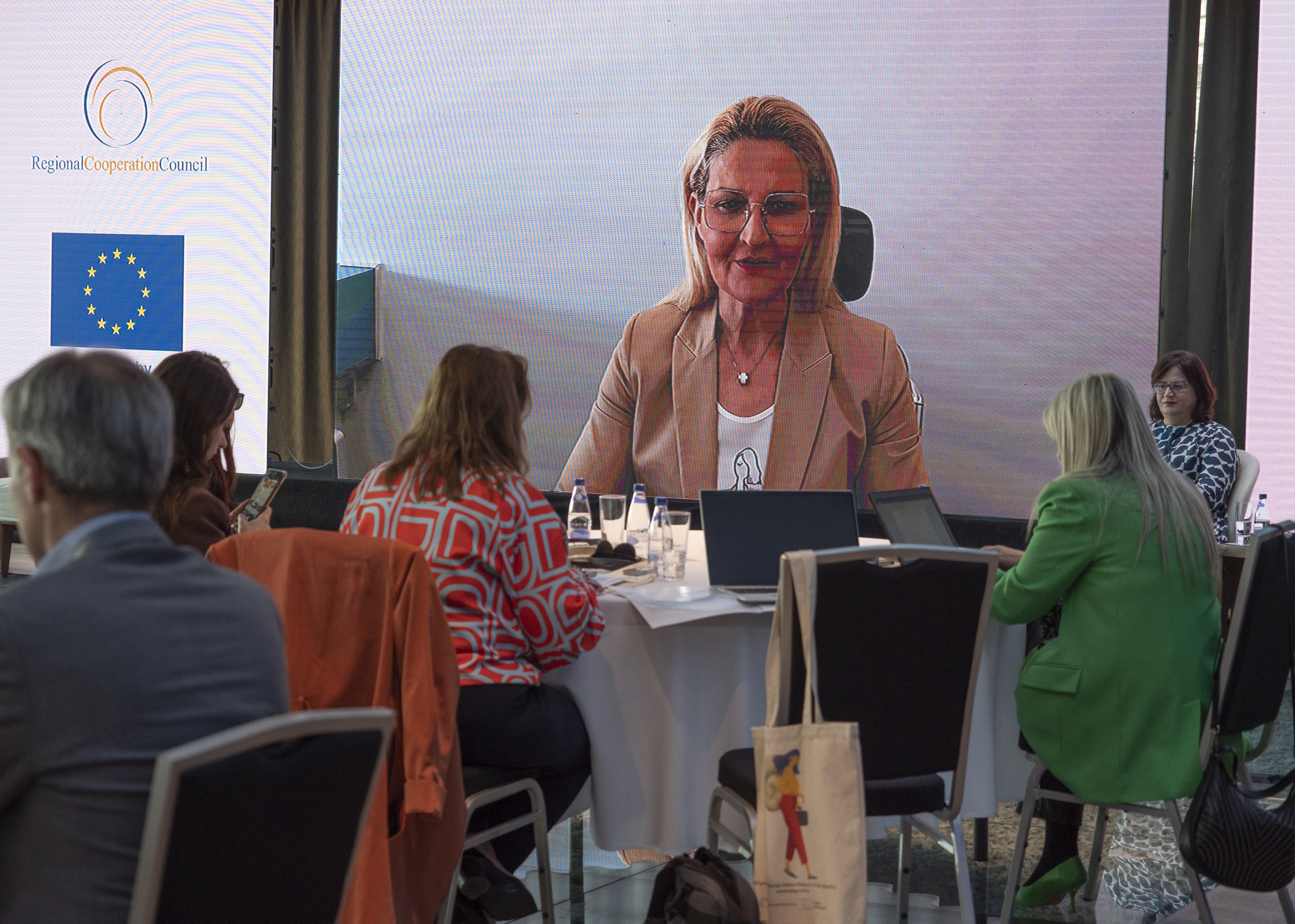
Tanja Miscevic, Deputy Secretary General of the RCC as a Key Note Speaker at ESAP 2 hybrid event "Western Balkans: Women and Work & Stronger PES" (Photo: RCC ESAP 2)
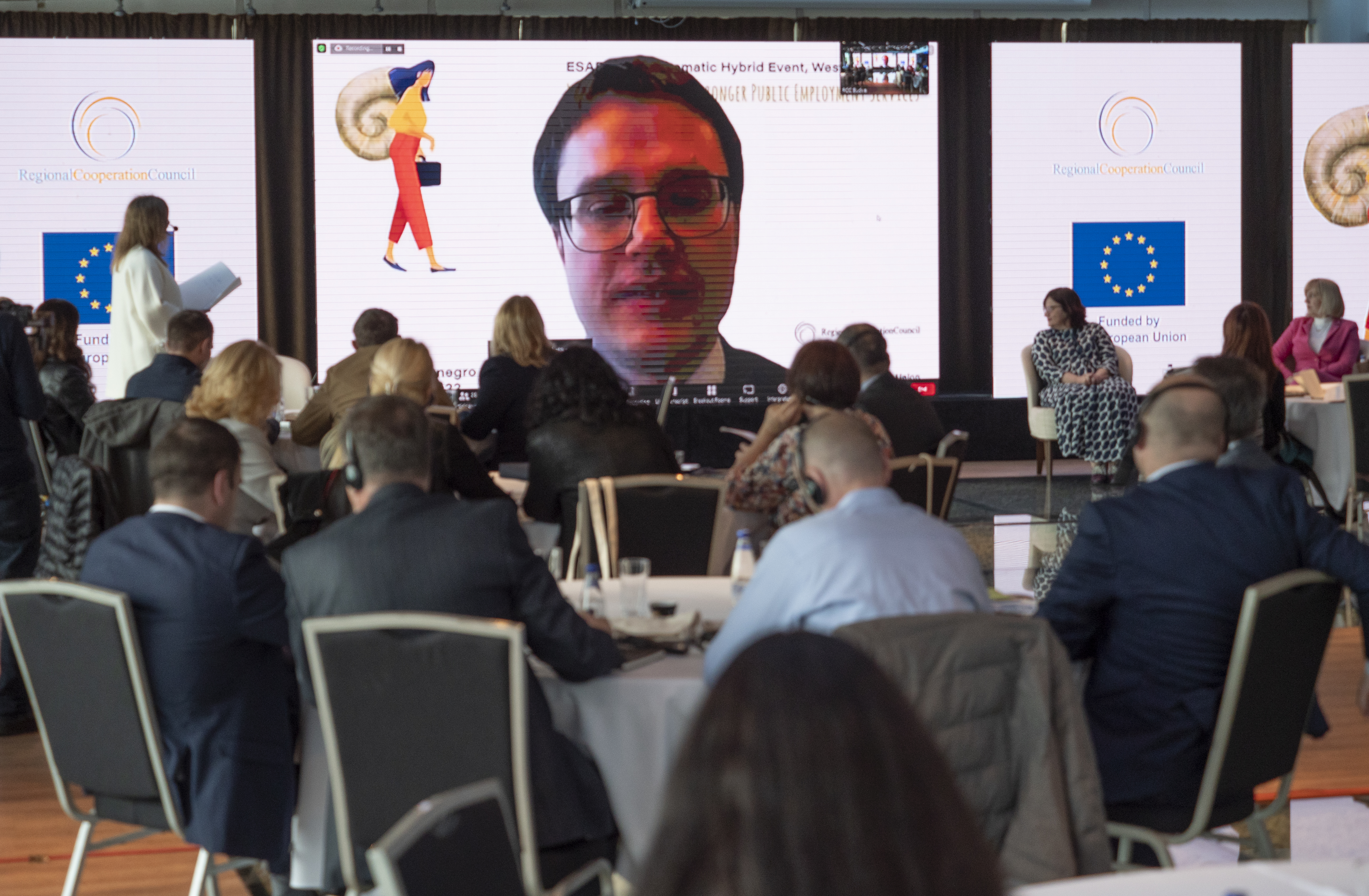
Key Note Speech online address to Kamil Valica from EC DG EMPL at RCC ESAP 2 event in Budva, Montenegro on 20-21 April 2022 (Photo: RCC ESAP 2)
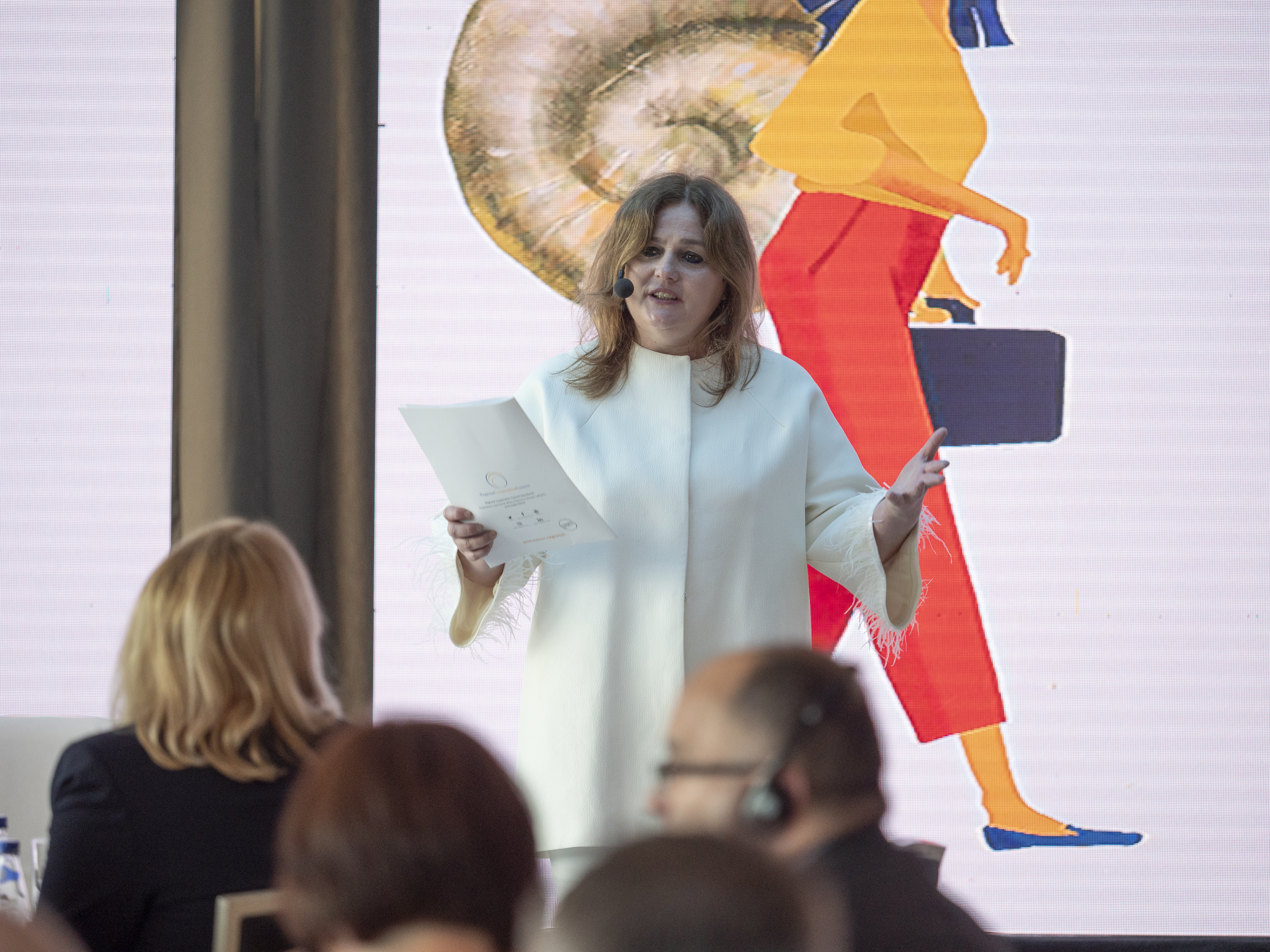
Amira Ramhorst, RCC ESAP 2 Team Leader presenting findings of Regional Report on Employment of Women in Western Balkans (Photo: RCC ESAP 2)
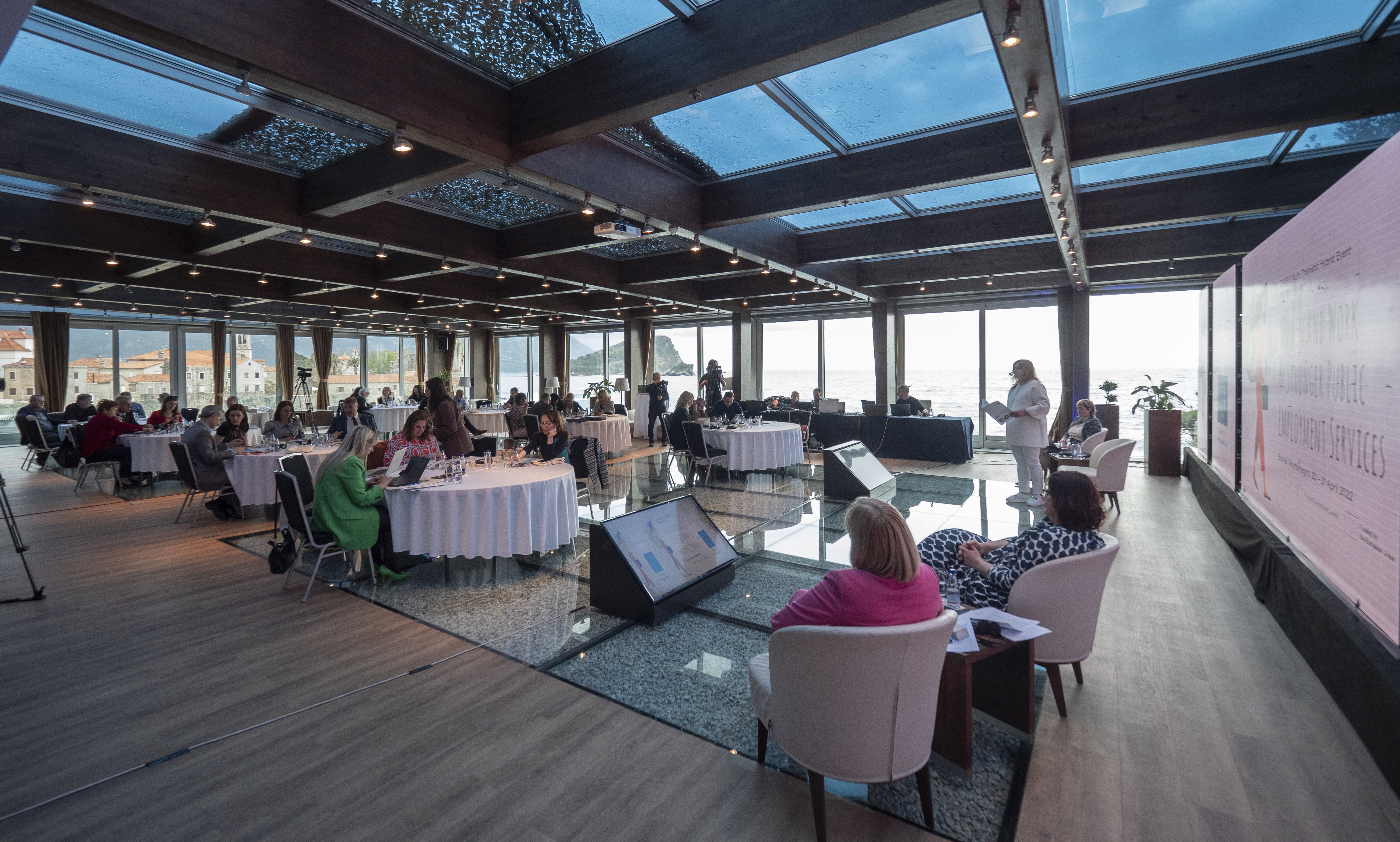
RCC ESAP 2 organised an Hybrid event "Western Balkans: Women and Work & Stronger PES" in Budva, Montenegro on 20-21 April 2022 (Photo: RCC ESAP 2)
RCC’s ESAP 2 Project organized 2-day Regional Event (Women and Work and Stronger PES) to discuss women employment and specific actions to enhance Public Employment Services in the Western Balkans
Budva/Hybrid – “When we look at women and labour markets in the region, we see low rates of activity, low employment, and high unemployment, especially for young women. More than half of the productive potential of women aged 15-64 in the Western Balkan (WB) economies remains untapped. So there is a lot that can be done to unlock this potential, as investing in women is an investment in our collective future”, said Tanja Miscevic, Deputy Secretary General of the Regional Cooperation Council (RCC) in her video key note address at the meeting Women and Work and Stronger Public Employment Services, organized by the RCC’s Employment and Social Affairs Platform 2 (ESAP 2) project.
Miscevic added that Western Balkans has a bright generation of young women, whose level of education is significantly higher than was the case in previous generations, adding that by working together the Western Balkan economies should do their best to enable them to thrive and contribute to our societies, which is strongly supported by the findings of the women’s employment report.
Kamil Valica, from the European Commission’s (EC) Directorate General for Employment, Social Affairs and Inclusion (DG EMPL), shared the key findings from the WB economies’ Economic Reform Programs (ERPs) assessments regarding employment, specifically employment of women in WB economies. Valica highlighted the importance of the European Pillar of Social (EPSR) Rights and its principles, as a key guide for WB economies in their EU alignment processes. The EPSR in its gender equality principle states that equality of treatment and opportunities between women and men has to be ensured and fostered in all areas, including participation in the labour market, terms and conditions of employment and career progression, and equal pay for work of equal value. Valica also shared other principles and rights of the EPSR relevant to employment of women.
Ms. Blerta Cela, Deputy Regional Director, UN WOMEN Europe and Central Asia and Ms. Milana Lazic, European Institute for Gender Equality were two final key note speakers, sharing the work of their respective organizations and highlighting commitment to women economic empowerment in Western Balkans and importance of data collection and evidence-based policy making.
Amira Ramhorst, RCC ESAP 2 Team Leader, presented some of the analytics for the WB region from the Regional Report, highlighting that the employment rate of women in the WB is very low, standing at 44.9% (2020 data), compared to men at 64.2%, with the gender employment gap of 19.3% in the WB, compared to 11.1% in the EU. On the other hand, employed women are typically better educated than employed men in the WB. On average, the percentage of women in employment with higher education is 32.9% compared to 21.6% for men. Still, 2020 data show that the category of managerial jobs is the smallest job category across all WB economies. Unemployment rate among active women is also typically higher than that of men in the Western Balkans. For 2020, the gender gap in unemployment rates was relatively low compared to the employment gender gap, some 2.4%.
The 1st day of this two-day Event focused on sharing the findings and initial recommendations from the Report on Women Employment in the Western Balkans as well as good practises focused on women employment and entrepreneurship from WB economies, all with the goal of enhancing policies and measures for increased women employment and entrepreneurship and peer learning and exchanges among WB Ministries and PES. After this cycle of consultations and exchanges, the Regional Report on Women Employment in Western Balkans will be published along with individual reports focused on women employment for each WB economy.
The 2nd day of the event was dedicated to the launch of 2022 cycle of bench-learning among WB Public Employment Services (PES). During this day, through presentations from the EC DG EMPL, PES Network Secretariat, as well presentations from two EU PES (Belgium, regional office and Estonia), WB partners heard directly about the EU PES bench-learning methodology and its benefits for the PES.
The phase one of the PES bench-learning for WB PES was completed within ESAP 1 project, and the 2022 cycle will build on these achievements, taking into account new developments in the region such as the introduction of the Youth Guarantee, Digital Agenda as well as crisis response and resilience (such as responses to Covid-19). This round of bench-learning in WB, modelled on the EU PES bench-learning model and guided by experts from the EU, is developed as a systematic approach, combining performance comparison and mutual learning activities, aimed at continuous performance enhancement of PES towards better service delivery.
In parallel, as a side event, the PES bench-learning train-the-trainers session took place, for trainers for each of WB economies, contributing to harmonisation of WB and EU bench-learning practises.
The ESAP 2 meeting gathered over 45 participants in person and close to 20 attending the meetings online, coming from WB partner institutions (line ministries dealing with labour issues, PESs), European Commission, UN Women Europe and Central Asia, The European Institute for Gender Equality (EIGE), European Training Foundation (ETF), as well as EU and WB experts in the field of labour markets.

